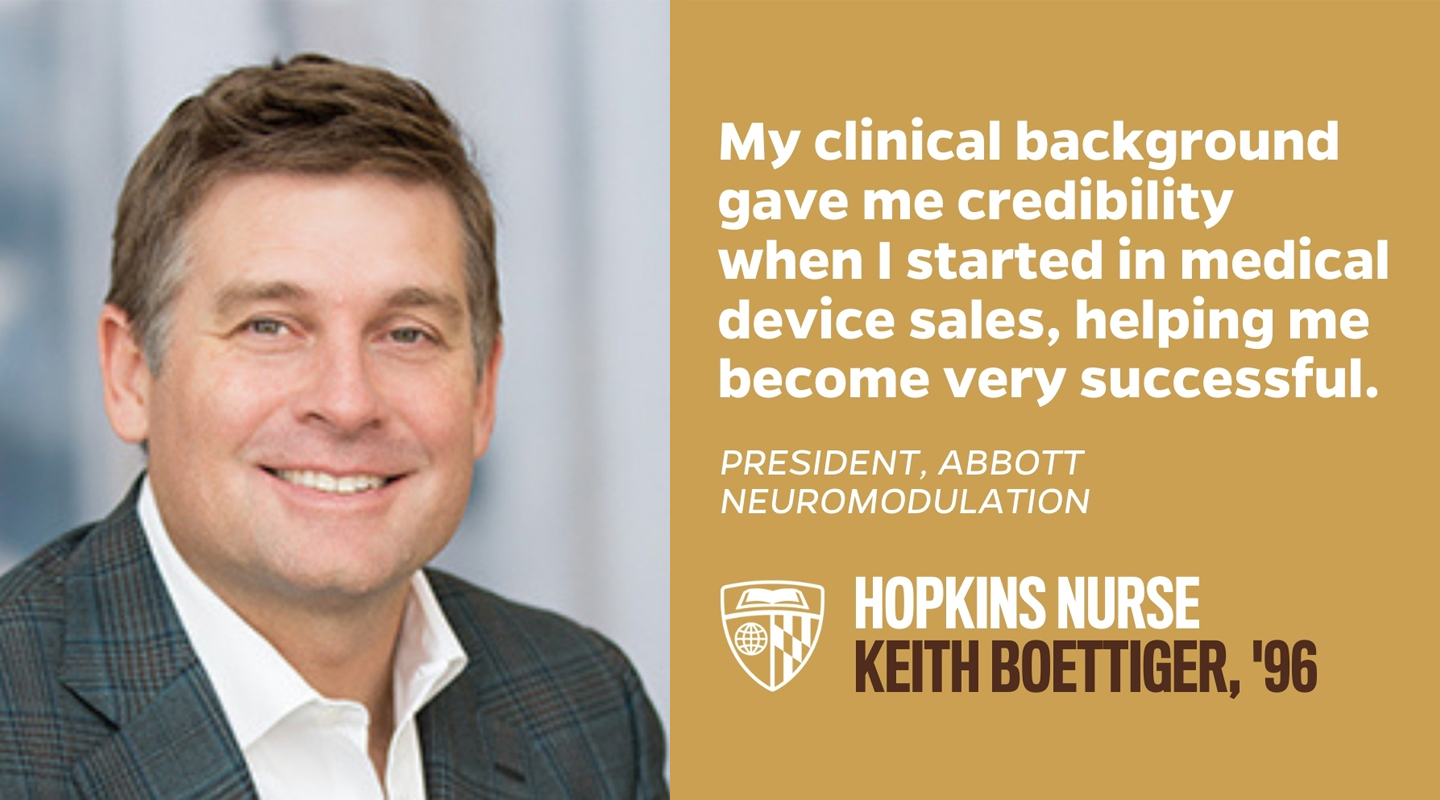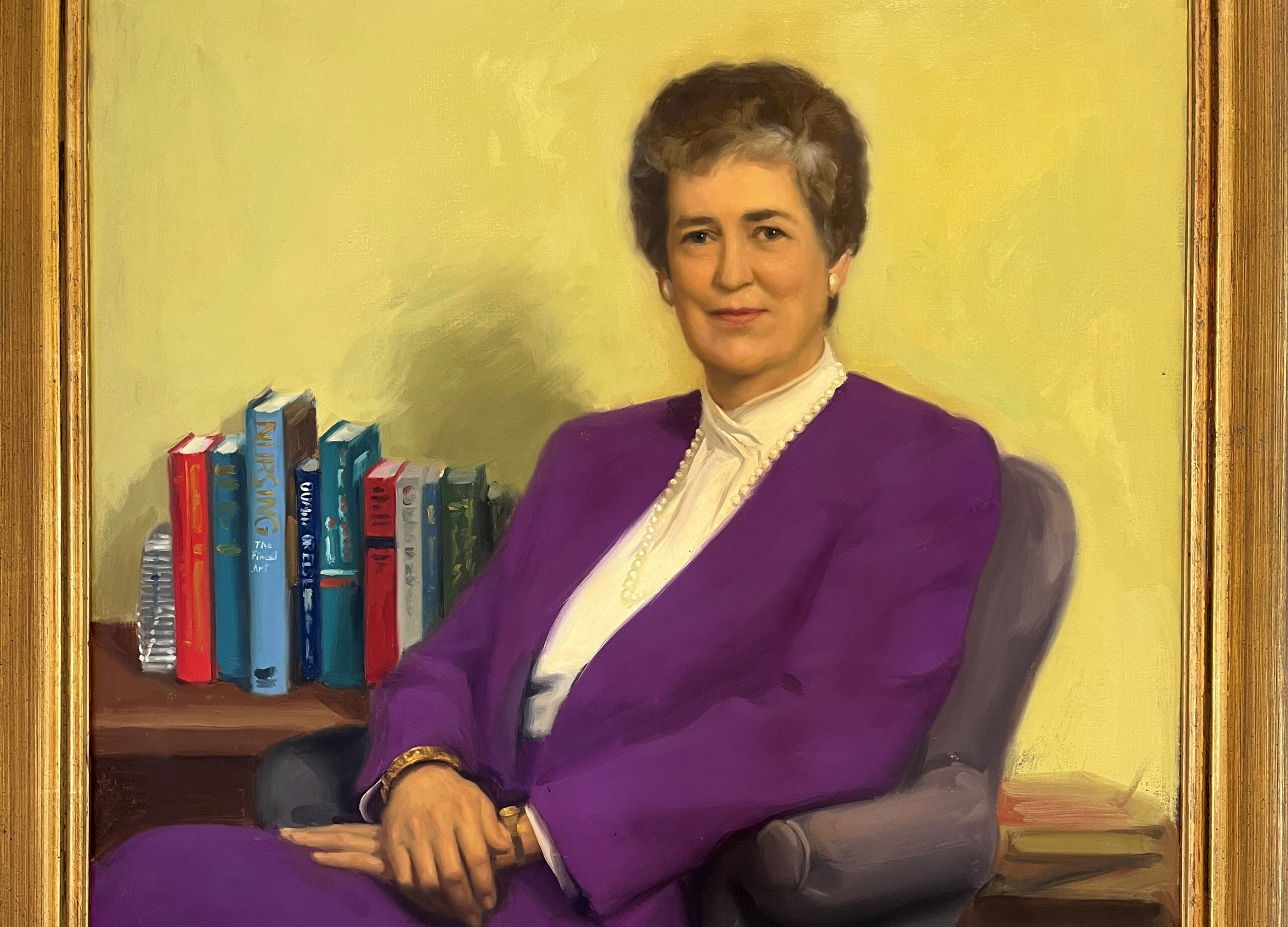Keith Boettiger, ’96
“Many people in the medical device industry have always worked in a business or corporate setting,” says Keith Boettiger, president of Abbott Neuromodulation, a division of Abbott worth over $800 million dedicated to developing medical devices for people living with chronic pain and movement disorders.
“My ability to interact with and encourage many kinds of people to perform at their best comes from being a nurse,” Boettiger explains. “It doesn’t matter if you’re leading a team as a nurse manager or as an executive—nursing experience is invaluable.”
Boettiger practiced as a nurse at the bedside for three years, then brought his clinical and professional experience to a position selling medical devices. “My clinical background gave me credibility, helping me become a very successful medical device sales representative.”
My ability to interact with and encourage many kinds of people to perform at their best comes from being a nurse.
Today, he’s far from the ICU where he started his career in nursing—or serving in the Peace Corps in Senegal, where he decided to join the profession. But the satisfaction that comes from truly making a difference remains his driving force. “The amazing thing about being a nurse is that you have so many options to grow your career while still helping people,” Boettiger says.
“Neuromodulation” is the application of electricity or pharmaceutical agents to afflicted nerves or neurological sites. Abbott develops and manufactures implantable spinal cord stimulators that treat chronic pain conditions, providing a non-addictive alternative for patients with no other solution. Abbott also develops deep-brain stimulation devices that treat the symptoms of movement disorders like Parkinson’s disease.
Spinal cord stimulator implants are unique in the sense that the surgeon implants the device while the patient is awake to ensure the device is in the right spot for optimal pain relief. “So I actually interacted with patients during the procedure,” Boettiger explains. “My nursing background and confidence communicating with patients at an anxious time helped the implant team achieve the best outcomes.”
And he expects future Johns Hopkins Nursing alumni to have similar opportunities.
“There’s a big opportunity right now for advanced practice nurses in specialty practice because surgeons are increasing their focus on procedures. Diagnostic and follow-up activities are becoming the domain of the nurse.” And nurses are ready. “Nurses are prepared for just about anything. As a nurse on the floor, as a nurse manager, or as an advanced practice clinician … you learn leadership.”
Read more about Keith Boettiger at magazine.nursing.jhu.edu/KeithB.

 The Returned Peace Corps Volunteer to Nurse Pipeline
The Returned Peace Corps Volunteer to Nurse Pipeline Remembering Carol Gray, First Dean of JHSON
Remembering Carol Gray, First Dean of JHSON From the Dean: Let’s Drive the Conversation on Health, Policy
From the Dean: Let’s Drive the Conversation on Health, Policy Appreciation: Fannie Gaston-Johansson
Appreciation: Fannie Gaston-Johansson All Together Now!
All Together Now!






